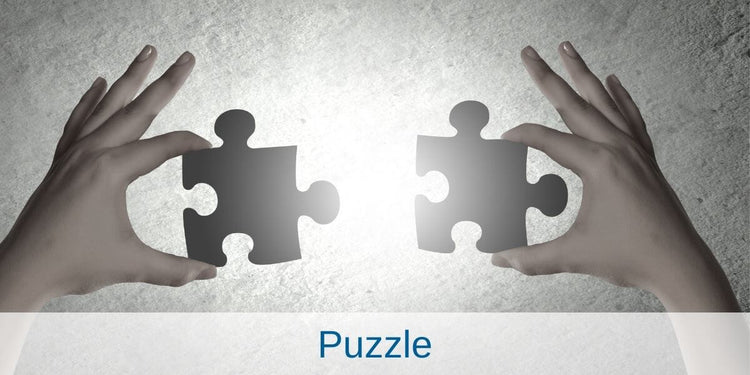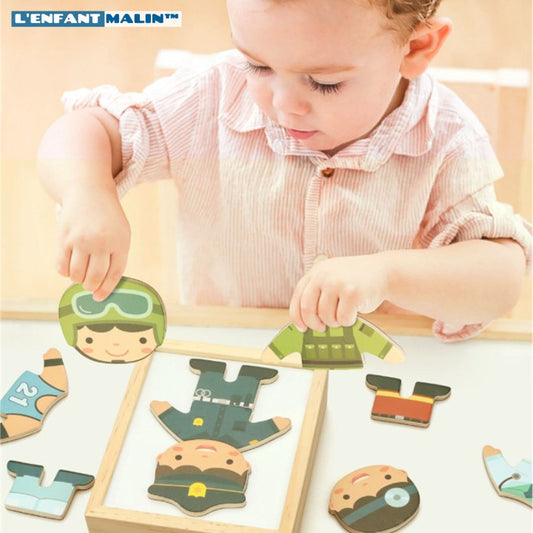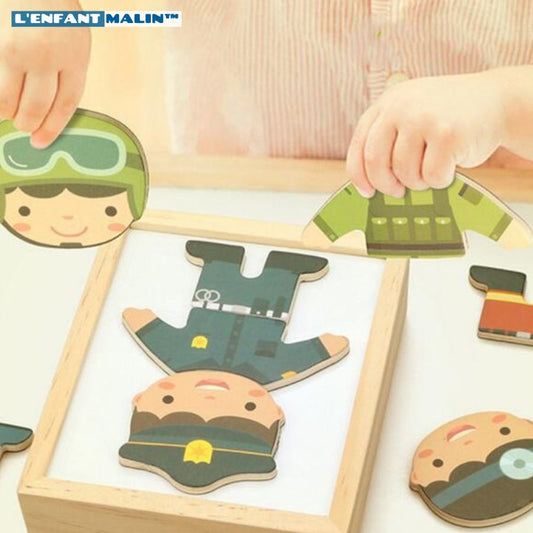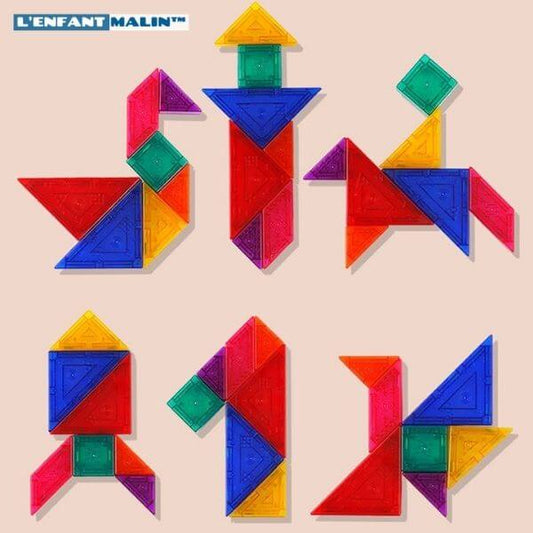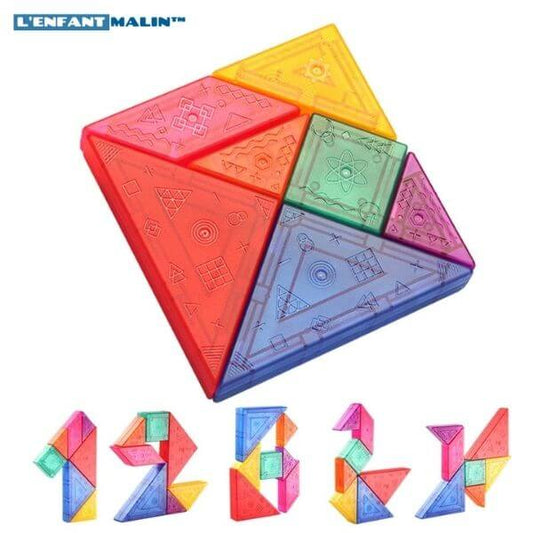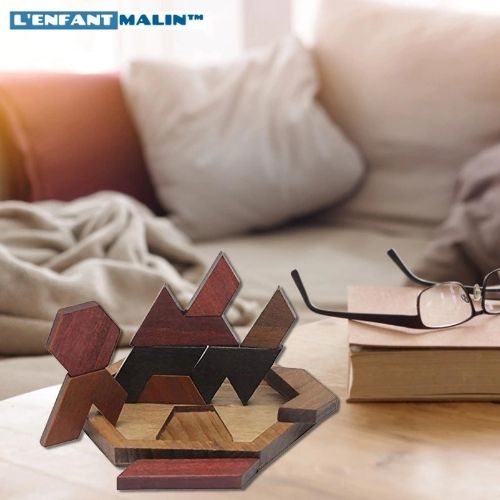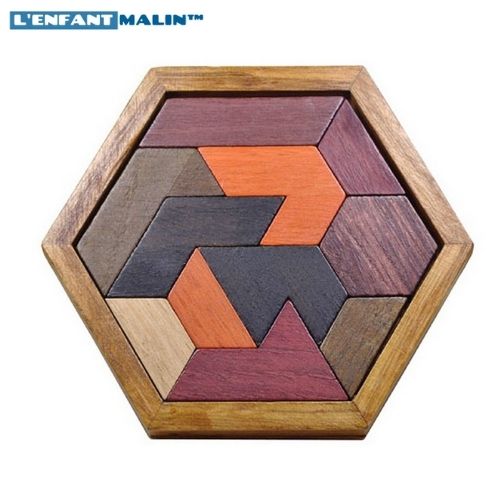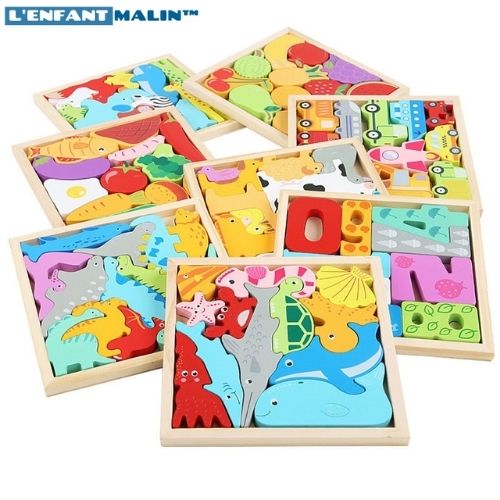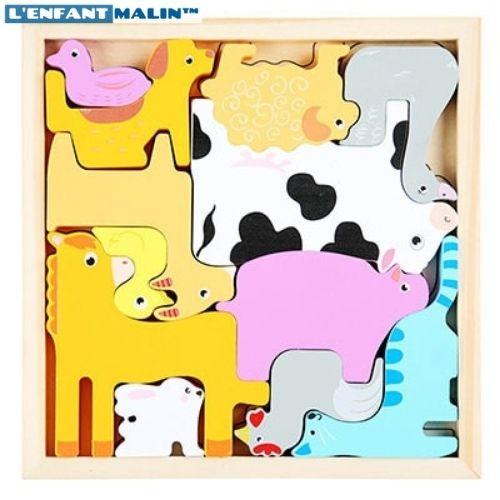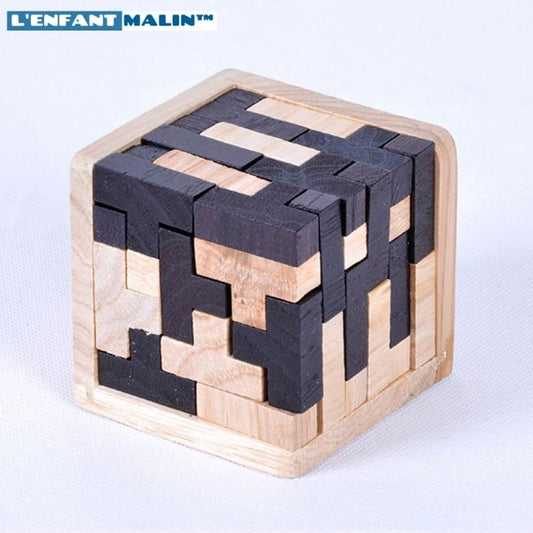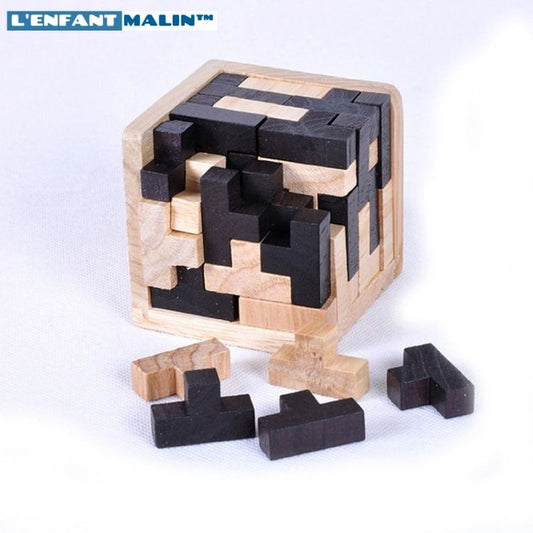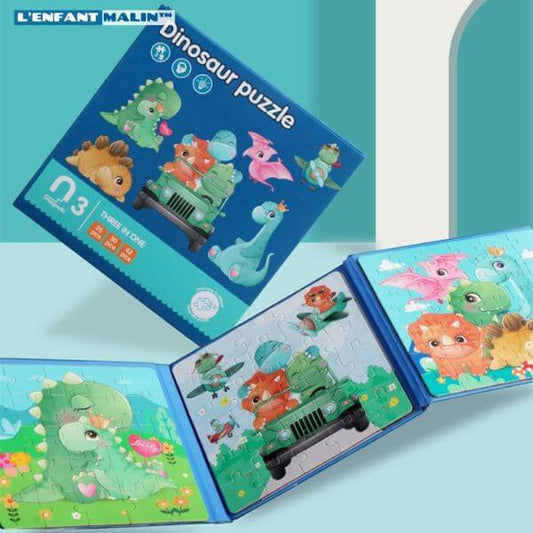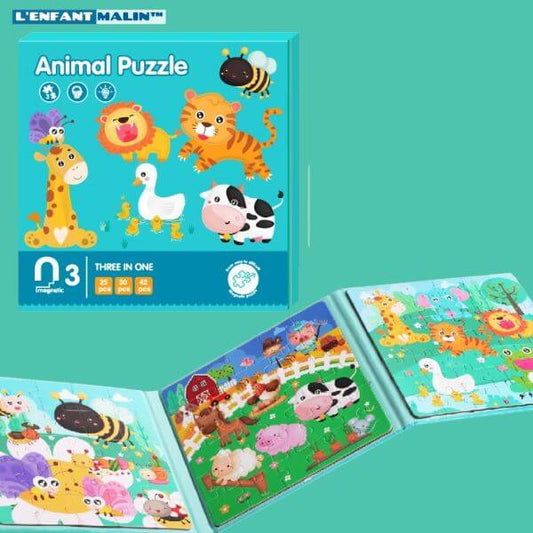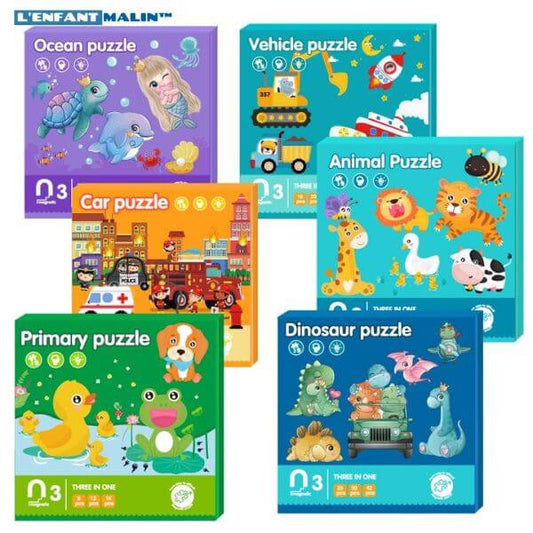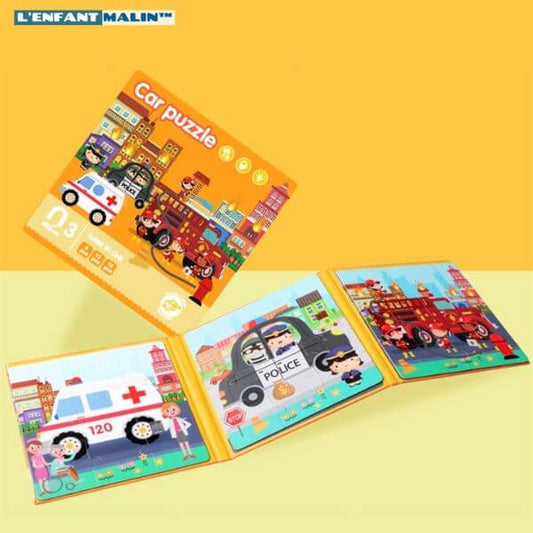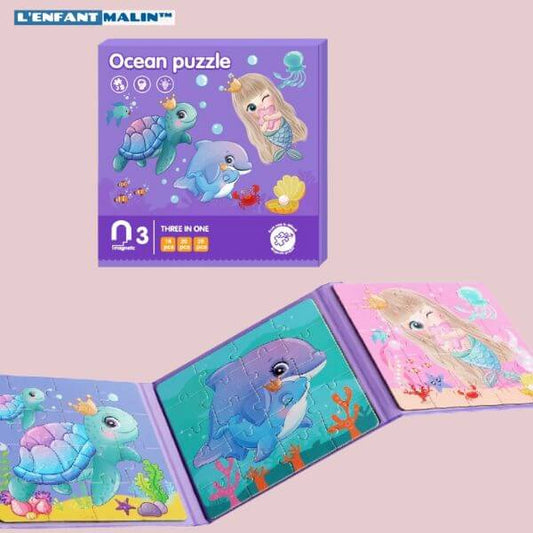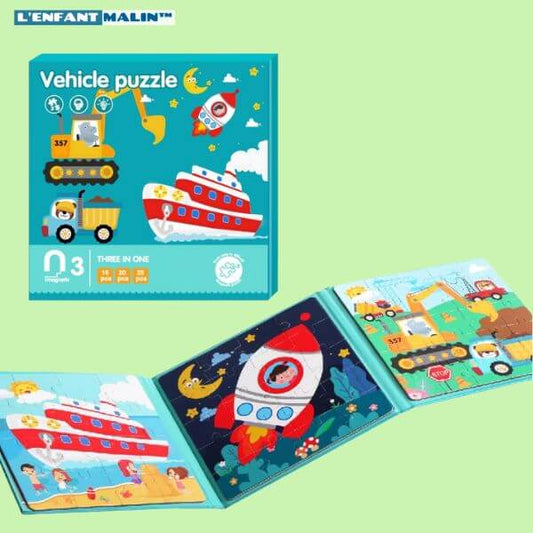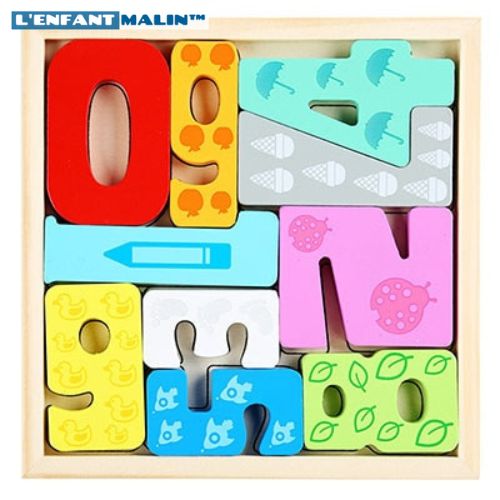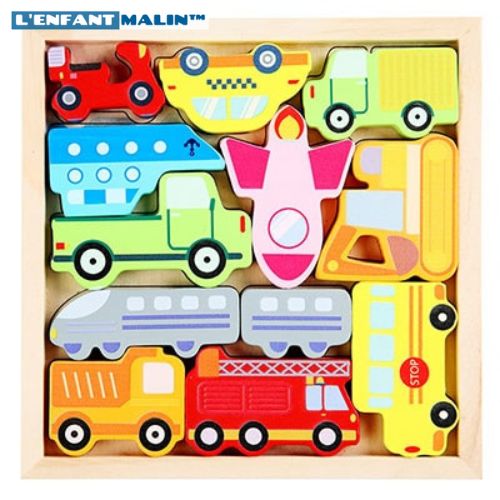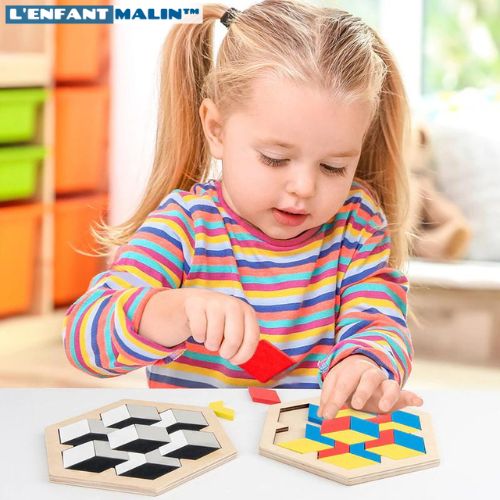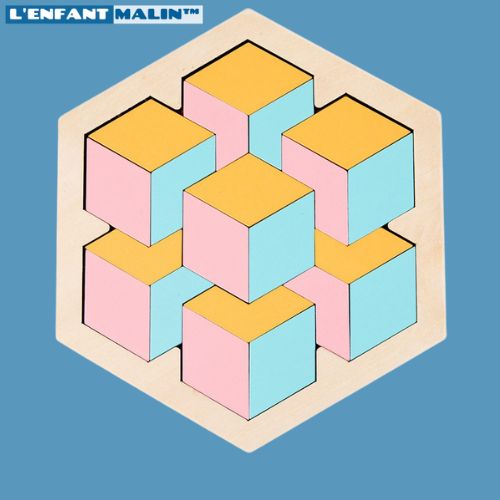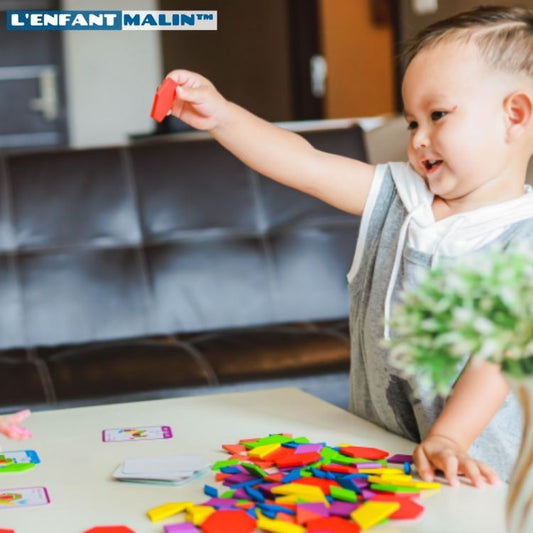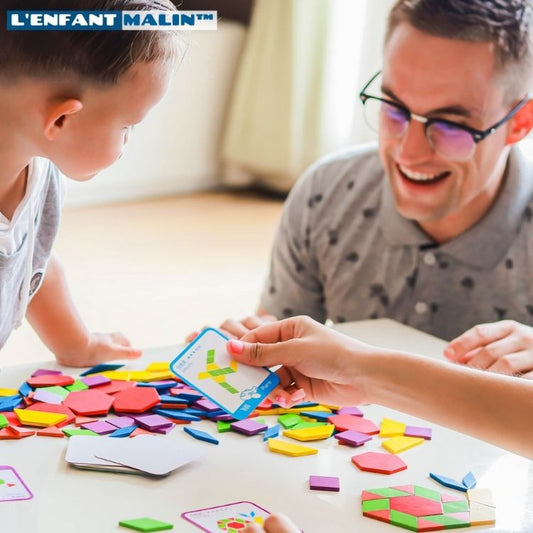Who says puzzles says childhood and rainy day at home doing puzzles, maybe that's the idea you have. But the puzzle is becoming more and more popular and is taking up more and more space in the world of educational games but also in activities for adults!
- So what are the real benefits of puzzles for our children?
- What is the point of doing puzzles for adults?
- Some types of puzzles
What are the real benefits of puzzles for our children?
✔ Fine motor skills
The puzzle (assemble a multitude of pieces) an excellent tool for developing gross motor skills (baby) and fine motor skills.
By manipulating the small parts, children strengthen their finger muscles. They have to pick them up, turn them and hold them carefully to put them together, which requires good control. Practice and more practice makes perfect!
As with other fine motor activities, make sure the size of the pieces is appropriate for the child's age and development. Younger children should practice with larger puzzle pieces before learning to handle smaller ones.
⚠ Wrong room sizes can cause stress, discouragement and a rapid loss of attention in children. This is exactly the opposite effect we are looking for!
✔ Visual perception
When children build a puzzle, their eyes see the shapes and pictures on the pieces and this information is sent to the brain, which interprets it. This is called visual perception.
The puzzle is important for toddler development and is crucial during the preschool and kindergarten years. To attract even more attention and interest, opt for animal puzzles or characters that your child knows well.
The puzzle develops many skills, making it a perfect educational fun activity during the early years.
Doing a puzzle strengthens connections between brain cells, improves speed of thinking and is a particularly effective way to improve memory short term. Remember a shape or an image to find another one that matches, here is the best memory game possible!
✔ Cognitive learning
It is characterized by understanding, the organization of ideas and the application of knowledge through choice and evaluation (cognitive functions). When children play with apuzzle, they learn the power of choice and strategy, as they begin to thoughtfully recognize and understand how the pieces fit together to form a bigger picture.
It also helps develop basic skills such as shape recognition, concentration, goal setting, patience and a sense of accomplishment, which will help children to prepare for school.
What is the point of doing puzzles for adults?
If we leave the prism of childhood and the educational aspect, puzzles also have many virtues for adults. Depending on our professional activity, it is often true that we are subject to permanent stress and a strong mental load. It is also shown that the older we get, the less we work our brains.
✔ Puzzles to reboost our brain! Adults begin to lose these neurons from the age of 25! To slow down or even reverse this brain aging intellectual activities such as completing puzzles are essential! Our problem solving skills as well as our memory are improved with regular puzzle practice. You know what useful gift you can now give to your family and friends!
✔ Let go! Completing a puzzle requires great attention, this way you will forget the worries of everyday life and your stress will decrease. Finally free yourself from this mental load while improving your brain's capabilities.
✔ brain degeneration begins much earlier than we think. It affects almost 20% of elderly people in France and begins at the age of 45. Doing puzzles regularly helps slow down this disease.
✔ A most pleasant family moment. As you can discover on the L'Enfant Malin website, there are types of puzzles for all ages. This is therefore the ideal opportunity for long moments of sharing and fun!
Preserve your health! We know that puzzle practice has a direct impact on your health but also on the well-being of your family. So don't hesitate any longer!
👨👨👦👦 Doing puzzles as a family strengthens emotional bonds by promoting collaboration and communication between members. It also boosts one's cognitive abilities, improving concentration, problem solving and patience. Finally, this fun activity offers valuable moments of relaxation and sharing within the home.
Long considered a board game in its own right, the puzzle stands out for its numerous variations such as the wooden puzzle , tangram puzzle, animal puzzle, 3D puzzle etc… Puzzles of all shapes, of different difficulties for the whole family but also the well-being of each participant.
